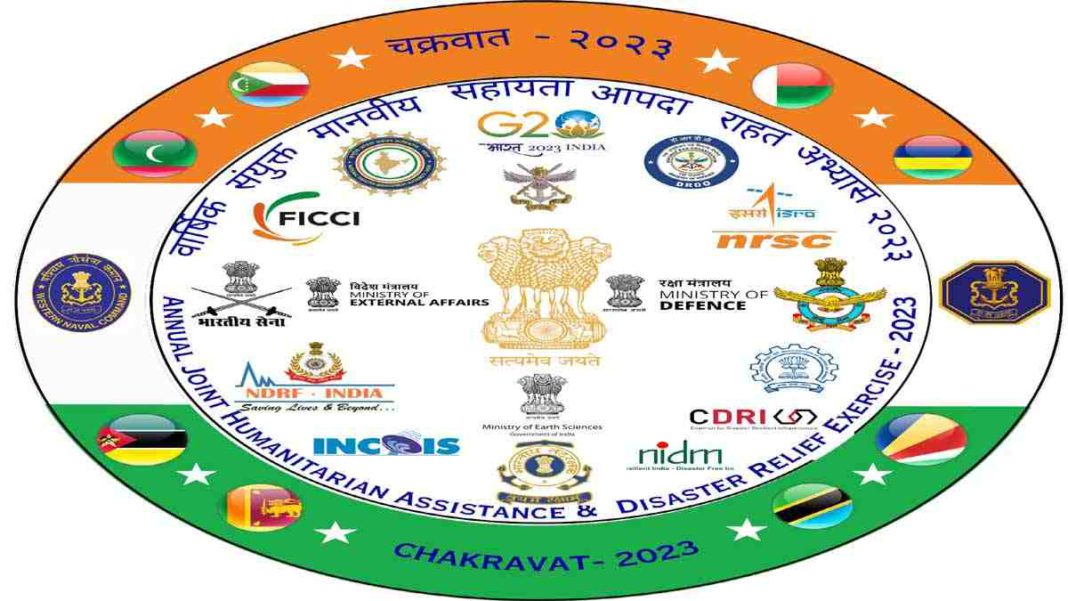INDIA. Mumbai: The Indian Navy is conducting the Annual Joint Humanitarian Assistance and Disaster Relief (HADR) Exercise “Chakravat” in Goa from October 9 to October 11. This exercise will address various issues, including climate change.
AJHE-23 includes a seminar, a Table-Top Exercise, and a Multi-Agency Capability Demonstration. It will witness participation from various national agencies, including the National Disaster Management Authority (NDMA), National Disaster Response Force (NDRF), National Institute for Disaster Management (NIDM), Indian Army, Indian Navy, Indian Air Force, Coast Guard, Indian Meteorological Department (IMD), National Remote Sensing Agencies (NRSA), among others.
During the seminar planned on October 09, Subject Matter Experts will discuss emergent topics such as Climate Change Adaptation and Disaster Risk Reduction: Practical Solutions, Disaster Response in the Indian Ocean Region (IOR): A Collaborative Approach, and NGO Collaboration in Disaster Reduction and Response: An Integrated Approach.
An industrial display is scheduled for October 10 and October 11, where various HADR equipment will be showcased by FICCI, Army, Navy, Air Force, Coast Guard, NDRF, SDMA, and NSRC.
Additionally, a Multi-Agency Capability Demonstration will be conducted on October 11, highlighting drills on rescue and relief to emphasize important lessons and nuances.
The logo for this year’s exercise features crests and logos of all participating agencies and flags of all nations combined into one single entity, symbolizing that HADR relies on joint and integrated action by all agencies.
The exercise, conducted in rotation by the Indian Army, Indian Navy (IN), and Indian Air Force (IAF) since 2016, was last held in Agra by the IAF.
AJHE is an outcome of Prime Minister Narendra Modi’s directive promulgated during the Combined Commanders’ Conference-2015. Since its inception in 2015, the Annual Joint HADR Exercise “Chakravat” has evolved into a multi-agency effort involving all three services, paramilitary services, as well as several disaster response organizations, NGOs, academic institutions, and international organizations.
The 2023 edition will further enhance national-level efforts and involve participation from eight countries in the Indian Ocean Region.
Developing collective and coordinated effective response mechanisms to address humanitarian crises and natural disasters is a crucial element of India’s inclusive vision for the oceans, known as SAGAR, or Security And Growth for All in the Region.
The challenge posed by climate change is exacerbated by the limited capacity of littoral Indian Ocean Region states to address this rapidly growing threat.
Therefore, the Indian Armed Forces have been frequently called upon to provide assistance to friends and partners in the Region.
While the three Services continue to provide relief and support in the event of a calamity, a whole-of-government approach will further enhance preparedness and response to such unfortunate events.
Also Read: The 27th Edition of Exercise “Malabar-2023” Concludes in Australia



